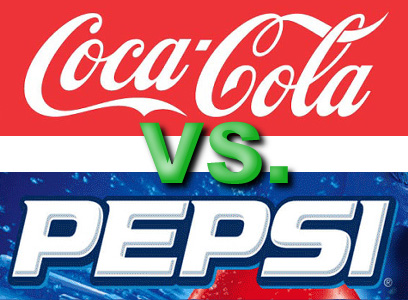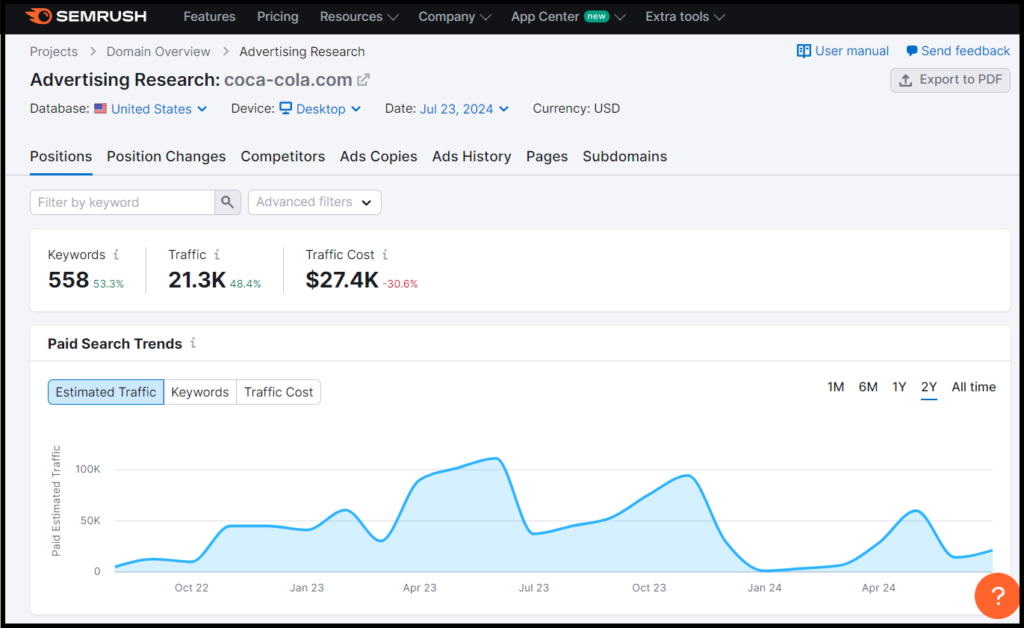In the past ten years, Google has steadily eroded the precision of keyword targeting in their pay-per-click advertising (“PPC ads”) product. For instance, what was once “Exact Match” keyword targeting is now more accurately described as “similar meaning match.” One of the many issues with this is that Google’s algorithm often dumbly matches brand names with the generic industry names of the products and services they offer. This creates greater friction among competing companies as competitors’ ads begin appearing when people search for brand names online.
Companies do also conduct PPC advertising while intentionally targeting their text ads to appear when consumers search for their competitors’ brand names.

Lawsuits involving PPC advertising frequently occur because a company targets ads to searches involving a competitor’s branded keyword combinations. Ads that target another company’s branded search queries are not necessarily considered an unacceptable practice. There are a few differing names for targeting ads to one’s competitors, and these include:
- Conquesting Ads / Conquest Ad Campaigns/ Brand Conquesting
- Brand Name Piggybacking
- Competitor Brand Targeting
- Prospecting Campaigns
Conquesting ad campaigns can be a valid, acceptable marketing strategy. Rhetorically, Pepsi can run ads to offer their products when Coca-Cola’s name is searched for. It is possible to attract consumers to your competing brand if you offer a good value proposition or if you have a persuasive promotion.

Conquesting ad campaigns can go off the rails, however, if one does not exercise a high degree of care. A general precedent was set long ago that establishes that one should not incorporate your competitor’s marks in your ad’s text copy, especially not when targeting the ad to appear when consumers search for their brand names.
Theoretically, one might be able to incorporate the competitor’s brand name in a conquesting ad in a fair use manner if it was set up as comparative advertising and if one is making true and accurate statements about the competitor. However, in practice, this could be virtually impossible to do in the small space allotted to pay-per-click ads. PPC ads are often set up dynamically, containing multiple short text snippets that can be offered up in various combinations that search engines automatically generate in order to rapidly test out effective mixtures of the available snippets. When the ad system automatically creates different text arrangements, it can be very hard to predict how those may communicate and ensure that all combos are not misleading in some way.
But, even if attempting to conduct comparative advertising within the copy of a text ad, the space involved is really too small to clearly convey that a comparison is going on. Search engine users conduct searches pretty rapidly, submitting a keyword query and then scanning the search results for something that appears to match what they’re seeking, and then clicking on it. The search results themselves are perhaps just barely tolerated as a conduit for consumers to get from point A to point B, and as such they may not dwell on the search results with any significant degree of consideration. The search engines themselves are aware of this, and have worked extensively to reduce the speed of returning their results.
This is likely why incorporating competitors’ trademark names into the text of ads is considered unacceptable – with such a small space it may be too easy for consumers who rapidly use search engines to misunderstand who the ad belongs to, particularly after they have conducted a brand name search. The expectation is that if one submits a name to search upon, the search engine will return accurate results. There is too high of a likelihood of confusion when brand names are incorporated within PPC ads.
An interesting aspect of conquesting ad campaigns is that they are typically — or almost universally — undesirably more expensive to conduct compared with regular keyword advertising not involving brand names. Since a consumer who searches for a brand name wants to find official media involving that brand, conquesting ads usually have poorer click-through rates and poorer conversion rates than when a company operates ads targeting its own brand names. Google rewards ads with better click-through rates, and they consider such ads to be higher quality. Ads’ text that contains the keyword searched-for are deemed higher quality for those keyword searches — this is part of how Google’s Ad Quality Score functions.
Thus, conquest ads that do not include the brand name that is searched for cost more in advertising costs — the click-throughs achieved and associated conversions need to have a sufficient return-on-investment in order for the campaign to make sense. Sales of lower-margin products or services might make sense in a “loss-leader” strategy, meaning the advertiser may expect to lose money on the campaign, but it could still be worth it if the customer is expected to make further purchases in the future. In this scenario, the lifetime value of the prospected customer may be the goal.
Infringement by displaying the targeted brand name within the text of a conquest ad can happen unintentionally in some instances. For instance Google can recommend keywords that may include brand names, and an ad manager that does not realize it is a competing brand may unthinkingly incorporate it into the advertising. Accidents used to happen earlier in search advertising history through dynamic keyword insertion, where the user’s query is parsed into the ad text displayed to them. But, Google Ads’ current incarnation requires one to authorize the keywords that are parsed into the ads’ text. In other cases, a paid search marketing team where some identify keywords associated with an industry and others write text copy to go in ads, it is possible that people may not realize what is the big picture — that the resultant ad campaign could be considered to be an unlawful form of trademark infringement.
Competitive intelligence tools, such as SEMRush and others, can sometimes convey an inaccurate impression that a brand name is being targeted by ads when it is not. For instance, if a consumer were searching for “Coca-cola soda pop t-shirts” an ad for Pepsi company that’s targeted to “soca pop t-shirts” searches could be displayed. Third-party intelligence tools can see rankings for search phrases but cannot determine how the ad’s keyword targeting was set up — without knowing, the ad could be targeted to “Coca-Cola,” “soda pop,” “soft drink,” “t-shirts,” or some combination of these phrases. There are also valid reasons why an ad can appear when a competitor’s word mark is searched for — such as “which is healthier Coca-Cola or Pepsi.”

Since conquesting campaigns are typically operated at a higher ad cost with lower numbers of conversions, most companies conclude that it does not make good business sense to conduct them. In other instances, aggressive competitors conduct conquest ad campaigns out of a dislike for the targeted company and the people behind it. There are times when business people allow ego and a competitive streak to become a top focus, and this may lead them to step over the line and into infringement.
Negative keywords are pretty much the only way one can ensure an ad will not appear for a competitor’s brand name search.
In cases where there is some level of malice involved, infringing ad copy may only be one component of a multi-pronged infringement campaign. Ad landing pages and websites may contain further infringement. Hidden code that is influential to SEO may include further infringing word marks.
As a PPC Expert Witness, I have assisted both plaintiffs and defendants in cases involving allegedly infringing ad campaigns, whether through intentional competitor brand name targeting or through accidental brand keyword targeting (such as due to Google’s increasingly broad matching system).
For litigation involving PPC trademark infringement and related Lanham Act claims, it is important to obtain the services of a qualified PPC expert witness.

Recent Comments